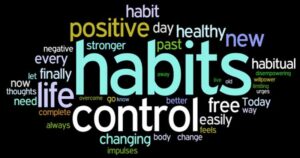When it comes to work, there’s always that lingering question: what are the best work hours? At first glance, it sounds like a simple thing: just pick a time, start working, and end when the day is over. But the deeper you look, the more complicated it becomes.
Different industries demand different schedules. Different people have different energy rhythms. Add in family life, health, cultural expectations, and the ever-changing nature of modern work, and suddenly the best hours aren’t so easy to pin down.
Instead of giving a cookie-cutter formula like “start at 8 AM, stop at 4 PM”, it’s more useful to ask: what makes certain work hours the best for you? That answer depends on more than a clock; it depends on your job, your health, and the kind of life you want to build around your work.
The Nature of Your Work Matters More Than the Clock
One of the biggest mistakes people make when talking about work hours is assuming everyone should keep the same schedule. In reality, the type of work you do often dictates when work hours make the most sense.
- Routine and customer-facing jobs: If you’re in banking, retail, hospitality, or customer service, the hours you keep have to align with the people you’re serving. Banks aren’t open at midnight, restaurants have specific serving times, and call centres are built around when customers are most likely to need help. In these roles, the best hours are the ones that match customer demand, not necessarily your personal preference.
- Creative and knowledge-based work: Writers, software developers, designers, researchers, and consultants deal with projects that require focus and uninterrupted stretches of thought. For this group, the best hours are usually the ones that allow for long, distraction-free blocks of time. It’s not about whether it’s morning or evening, it’s about whether you can work without constant pings, emails, or meetings breaking your flow.
- Shift-based and essential services: Healthcare workers, factory workers, security staff, and logistics professionals don’t have much room for flexibility. Their work happens around the clock. For them, the best hours aren’t about choosing when to work but about how well rest is structured around shifts. A night shift worker’s best work hours might technically be 10 PM to 6 AM, but what makes it sustainable is whether they can sleep and recharge effectively afterward.
The key here is that the nature of the job itself shapes what’s possible. No amount of productivity hacks will change the fact that some industries need daytime hours, while others require overnight availability.

Productivity Is About Protected Hours
We often equate productivity with time spent at work, but this is misleading. Research shows that most people only have 3 to 5 truly productive hours in a day. The rest is often filled with administrative tasks, interruptions, and shallow work that doesn’t move the needle much.
So when we ask what the best work hours are, the more useful question is: which hours can you protect from distraction?
- An office worker who starts early and gets three solid hours of deep work before the flood of emails and meetings begins may accomplish more than someone who stays until 9 PM but spends most of that time context-switching.
- A freelancer who blocks their day into structured chunks, say, 2 hours for client work, 1 hour for admin, and another 2 hours for creative projects, may hit higher-quality output than someone working 12 scattered hours.
- Even in traditional jobs, employees who can protect specific parts of their day (like early mornings before the office buzz begins or late afternoons after meetings wind down) often achieve more meaningful results.
The best hours are not necessarily the longest or earliest but the ones that you can defend from the constant pull of modern distractions.
Work Hours and Health
Another overlooked angle in this conversation is health. Work hours that ignore recovery are a fast track to burnout.
Sleep: If your work hours cut into your sleep, you may be awake longer, but your performance will steadily decline. Studies have consistently shown that poor sleep reduces attention, problem-solving ability, and emotional stability. The best work hours are those that leave enough room for consistent, quality rest.
Breaks: Productivity isn’t sustained by working straight through the day. Short breaks every couple of hours, as well as a real lunch break away from your desk, can make a huge difference in energy levels. In countries where lunch breaks are respected (and not rushed or skipped), people tend to return more focused in the afternoon.
Boundaries: Healthy work hours also mean having a cut-off point. If work stretches into dinner, late evening, and weekends without pause, it starts to chip away at relationships, mental health, and creativity. The best work hours create space for life outside of work: family, hobbies, exercise, and even doing nothing.
Put simply: hours that constantly exhaust you are never the best. The best hours make space for you to recharge and return sharper the next day.
The Future of Work Hours: Flexibility Over Uniformity
The traditional 9–5 isn’t disappearing, but it’s no longer the only model. Remote work, hybrid offices, and technology-driven collaboration tools have given us more freedom than ever to rethink how we structure our days.
- Core hours model: Some organisations use a core hours system where everyone is required to be available at certain times (say, 11 AM to 3 PM), but outside of that window, employees can adjust their schedules. This balances collaboration with individual flexibility.
- Asynchronous work: Global teams often can’t all work at the same time. Instead, they use project management tools and shared documents so people can contribute at different hours. For these teams, the best hours are about overlap that’s enough to maintain communication but not so rigid that it disrupts personal lives.
- Results-focused environments: More companies are realising that it doesn’t matter when people work, as long as results are delivered. In these cases, the best work hours become very personal, you work when you’re at your sharpest and design your hours around outcomes, not presence.
The direction is clear: the best work hours of the future won’t be one-size-fits-all. They’ll be built around flexibility and balance rather than strict uniformity.

So, What Makes Work Hours “Best”?
It’s easy to get caught up in the idea that the perfect set of hours exists (a magic formula that guarantees success), but the truth is more nuanced.
The best work hours are those that:
- Fit your work: Do they make sense for your job’s requirements? A nurse, a banker, and a graphic designer will have completely different answers to this.
- Fit your life: Do they leave room for rest, health, and personal commitments? If work hours eat into everything else, they’re not sustainable.
- Fit your focus: Do they allow space for deep, uninterrupted work on the most important tasks? Without this, hours become busy but not productive.
When these three factors align, work hours become not just the best but sustainable over the long haul.
On a final note, the idea of the best work hours is less about the clock and more about the conditions. Hours are best when they protect focus, respect health, and fit both the nature of your work and the realities of your life. For some people, that may look like the traditional 9–5. For others, it may look like split shifts, flexible core hours, or project-based schedules that shift week by week.
At the end of the day, the best hours are not the ones that sound ideal on paper, they’re the ones that allow you to consistently show up, do meaningful work, and still have a life outside of it.
Don’t copy someone else’s timetable. Pay attention to your work demands, your energy, and your wellbeing. That’s where your best work hours truly live.
Stay frosty.




